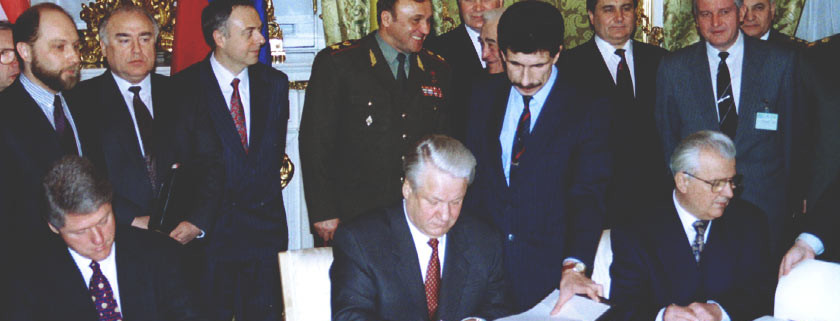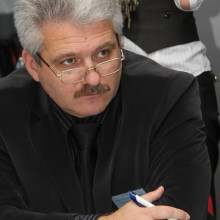Oleh Belokolos
Chairman, Maidan of Foreign Affairs
There is hardly a document in the independent Ukraine’s foreign policy that is more well-known than the Memorandum on Security Assurances relating to the accession of the country to the Treaty on the Non-Proliferation of Nuclear Weapons (NPT)— the legendary 1994 Budapest Memorandum. Shrouded in myths, it is often seen and referred to as the proverbial magic crystal capable of solving all Ukraine’s national security problems.
In truth, few people know what it is really about and even fewer have actually read it. Of those, perhaps, just a handful of politicians and experts have a profound understanding of its political and international legal contexts. So, on the eve of yet another anniversary of Ukraine's Independence, it seems timely to give that international document a closer look and draw non-biased conclusions.
To better understand the Budapest agenda in principle, we can divide it into three main issues: the international safeguards, the guarantees to non-nuclear states and the actual terms of the Budapest Memorandum itself.
One of the often quoted historic examples of international guarantees that is considered classic are those given to Belgium in the nineteenth century. Its international guarantees of eternal neutrality were signed in 1831 by the five great European powers — Britain, France, Russia, Austria and Prussia. However, later, they were brutally and cynically violated twice — in 1914 and 1940 by the aggressive German Empire and the Third Reich, respectively. And this is despite the fact that over the interwar period, Germany has officially confirmed Belgium’s neutrality guarantees on at least two occasions — on January 30, 1937, and on April 28, 1939.
So, considering the current volatility in the international relations and the weakening of the UN's role, to seriously rely on any so-called "international security guarantees" is obviously nothing more than wasting both time and resources, while being trapped by illusions — the practice as irresponsible as extremely dangerous, as Ukraine learned firsthand in 2014.
In the course of an active international debate around the NPT, guarantees of non-use of nuclear weapons against non-nuclear states were provisionally referred to as «negative,» while guarantees of assistance in the event of an attack — «positive.» However, despite limited progress as expressed by the 1968 UN Security Council Resolution #225 and 1995 UN Security Council Resolution #984, non-nuclear states have not yet succeeded in securing even the «negative» guarantees in the form of an international treaty, convention or other multilateral instrument that would be legally binding.
The world has no such international institution as legally binding guarantees by the nuclear states to the non-nuclear ones.
In other words, so far, the world has no such international institution as legally binding guarantees by the nuclear states to the non-nuclear ones.
Remarkably, the very wording of the Budapest Memorandum gives way to certain controversy — questions arise even in respect to the actual translation and, therefore, interpretation, of the text. In particular, the English term «security assurances» in the Ukrainian text is translated as «security guarantees,» while obviously, the parties — naturally, excluding Ukraine — meant just that — political assurances.
The term «security assurances» in the Ukrainian text has been translated as «security guarantees,» while all the signatories except Ukraine meant political assurances.
At the same time, the fact remains that our state has duly fulfilled all its obligations under the Budapest Memorandum and consequently, has every right to demand the unconditional implementation of its provisions by other countries.
There is no doubt that the Budapest Memorandum must remain one of the main instruments of our diplomacy. For the moment, Ukraine’s significant contribution to strengthening international peace and security is seriously underestimated — something that should serve as an additional argument in our diplomacy, especially considering the Russian occupation of Crimea and aggression in eastern Ukraine.
Moreover, in the near future, Ukraine should initiate a broad international debate on the issue, including within the UN. After all, the official December 19, 1994, letter with the text of the Budapest Memorandum signed by the Ukraine’s, US, UK and Russia’s Permanent Representatives to the UN was delivered to no other than the UN General Assembly. The goal of such discussion should be to develop appropriate tools to protect non-nuclear countries from the pressure of nuclear ones.
Unfortunately, the only inevitable alternative to broad international consensus in that area is the proliferation of weapons of mass destruction, their means of delivery and relevant hazardous technologies.
It seems only natural that our state should be the one to initiate the development of mechanisms that would protect the non-nuclear states from the pressure of the nuclear ones.
Photo: etcetera.media
Source: Газета.юа













